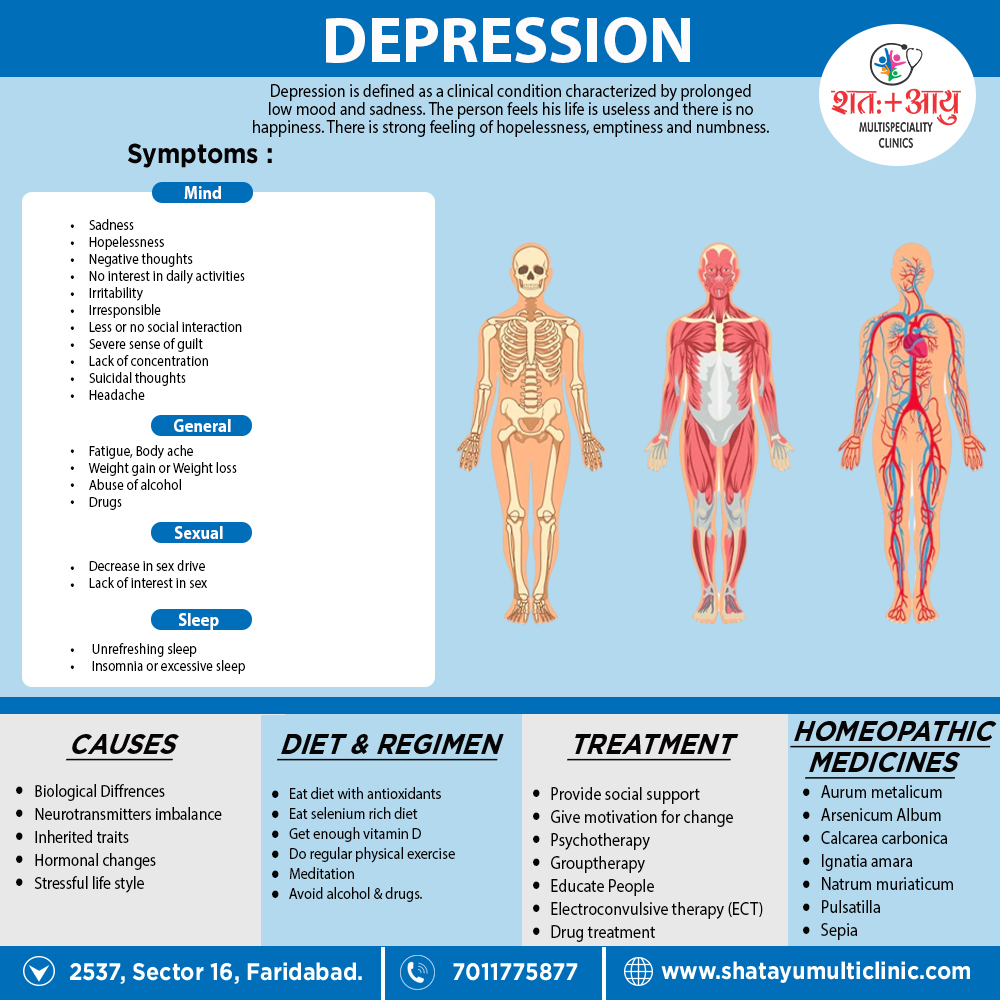Depression:
It is a condition that causes extremely low also sad mood, that can last for weeks, months or even years. Everyone at some point in their lives, feels sad, low and dejected, but when this sadness begins to infiltrate into a person’s behaviour, relationships and work, it called Depression and requires the help of trained medical professional.
How you know,You have depression?
- Do you feel unusually sad?
- Do you feel life is hopeless?
- Does life seem like a bed of thorns?
- Do you want to stay alone always?
- Have you feel nobody loves you?
- Have you feel life is useless?
- Are you getting repeated suicidal thoughts?
If your answers to most of the above questions are YES, then you are probably depressed.
According to World Health Organization DEPRESSION is the 4th most devastating illness in the world today. And with this rate, it may become the 2nd ranked illness by 2020. Besides this, the average age of onset of Depression is mid-20s.
It can easily take control of your life, your thoughts, feelings also actions. The key to overcoming it, therefore is a combination of the right medicines with the right lifestyle changes. Lastly, this is exactly what Homeopathy offers.
Homeopathy will relieve you effectively and safely without any side effects.

